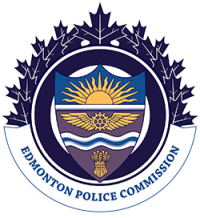The purpose of this policy is to ensure an open exchange of information between the Edmonton Police Commission (Commission) and the Edmonton Police Service (Service) when dealing with major policing events.
Definitions:
MAJOR POLICING EVENT: A planned or unplanned event that significantly taxes the Service’s ability to provide basic policing services to the citizens of Edmonton. It requires a significant number of police members to assess and manage in excess of those ordinarily on duty but does not include a Level 2 incident as defined by the Service. It can also be a significant or notable organization or community event that has the potential of disrupting public peace, order, or security in a significant way. Examples of a major policing event may include, but are not limited to:
- civil disturbances;
- union conflicts and labour unrest;
- public demonstrations involving large or disorderly crowds;
- political meetings or protests in a public venue;
- event requiring the assistance of other police agencies;
- event involving emerging local, provincial or national issues;
- natural and human disasters; and,
- event that requires deployment of the Public Order Unit.
Guidelines:
- The Service will provide the Commission with the information and details required to perform its statutory mandate. Specifically, the Service will provide information that ensures the Commission that the Service has the necessary policies in place to address the efficient and effective policing at a Major Policing Event. That the Service can properly fulfill its regular policing responsibilities and that they have the necessary resources to police the Major Event.
- The Chief of Police will notify the Commission, as soon as practicable, when the potential of a Major Policing Event or issue is identified.
- The Commission, in consultation with the Chief of Police, will establish reasonable ongoing reporting requirements pre- and post-event with respect to matters that may include:
- The nature of the event, including, but limited to, date, timeline, location, attendance, agencies involved, and manpower requirements;
- The Service’s proposed priorities and objectives;
- Legislation, Provincial Policing Standards, and risk management considerations;
- Funding and resource requirements including, but not limited to, budget, resourcing, Memorandums of Understanding (MOUs), Mutual Aid Agreements;
- Command and control structure;
- Significant special facility requirements, including, but not limited to, detainee management;
- Whether the Service is taking planning or operational direction from another entity;
- Contingency planning to ensure regular policing requirements are maintained in the City of Edmonton; and,
- Policy and training issues, including, but not limited to, development, implementation, and compliance.
- Where exigent circumstances arise, in the planning of the event or as the event unfolds, the Chief of Police will notify the Commission Chair or, in their absence, their designate.
- Throughout the consultation and review process, the Commission may provide recommendations to the Service, however, the Chief of Police is free to accept or reject any or all of these recommendations, at their own discretion. The Chief of Police maintains the autonomy to develop and execute the appropriate operational plan(s) for the Major Policing Event.
- 6.These guidelines also pertain to a response to a Major Policing Event where the Service is providing policing outside the boundaries of the City of Edmonton.
References:
- Police Act, RSA 2000, c P-17
- EPC Policy 2.2.2 – Request for Policing Assistance Outside Municipal Boundaries
